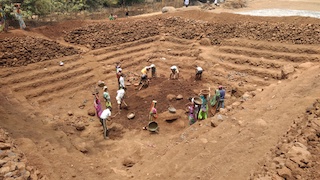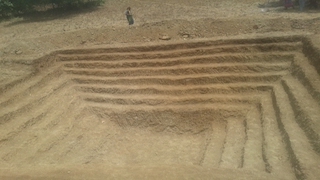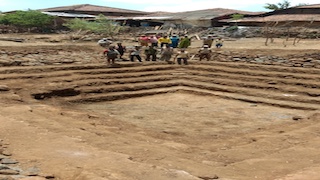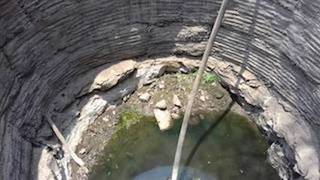Farm pond 1 – Pimpalvati Village, Taluka Peth , District Nasik
Length 15 meters, Breadth 15 meters, Depth 3 meters. Storage Capacity: 450,000 litre. With a prediction that the farm pond would be filled at least 25 times, groundwater level is expected to increase by 11,250,000 litre




